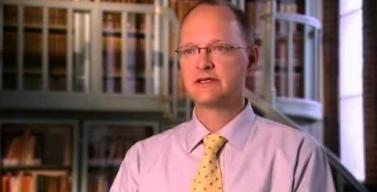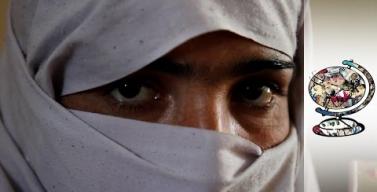An inside look into the lives of South Africans with albinism; a story of the challenges and the triumphs of living in a country where they are largely marginalized by others who struggle to place...
AFRICAN VOICES: LAWYER FIGHTS "WIDOW SEX" TRADITION
March 21, 2013 - MALAWI - Lawyer and human rights activist Seodi White has long been an outspoken campaigner for gender justice in Malawi, a country where half its women are married before the age of 18.
As the head of the Malawian chapter of Women in Law in Southern Africa (WLSA), White is at the forefront of the battle against inequality, traveling around the country to promote education and to stop young girls from giving up on school and marrying in their early teens. But the prominent activist, who is herself the mother of a young daughter, is not only concerned with the rights of teenage girls. She is also targeting cultural practices that harm older, vulnerable women in Malawi. One such custom, prevalent in the southern tip of the landlocked country, is "widow cleansing," a traditional practice in which a widow is expected to have sexual relations, "in order to cleanse her," explains White.
"There is a belief that if she does not sleep with someone, the spirit of her dead husband will come and visit upon her and her family will be cursed," she adds.
White says that the practice is not forced upon widows. Instead, she says, the tradition has become so much part of the culture that widows themselves call for it.
"It's a mindset issue," says White. "Even the widows, they've told me, 'I don't want to die, I don't want a curse to come to my husband.' They cry to be cleansed."
White says the tradition, which involves unprotected sex, thus increasing the chances of HIV infection, has been turned into a business.
"There are professional cleansers in villages," says White. She says these men charge widows up to $50 for their services, in a country where the minimum wage is less than $1 per day.
In recent times, there have been several initiatives by White's NGO, as well as other groups, to try and change the situation. One effort is to target the "professional cleansers" in attempt to get them to change their ways.
"Some have actually come out in the open and said: 'I used to be a commercial cleanser, I'm HIV positive, I've stopped, it's not fine and I go village by village telling other commercial cleansers to stop this, it's a risky taboo behavior.'"
Related Podcasts
|
|
2004 BBC Namibia - Genocide and The Second Reich documentary commemorating 100 years since the Herero and Nama genocide. |
|
Documentary about the Armenian genocide in 1915 which Turkey denies down to the present day. The documentation is based on reports of, amongst others, the Ministry of Foreign Affairs in Berlin,... |
When Soheila was 5 years old, she was given away in marriage to an old man as compensation for her older brother's crime: stealing the man's third wife. After years of abuse in the marriage, "I... |




